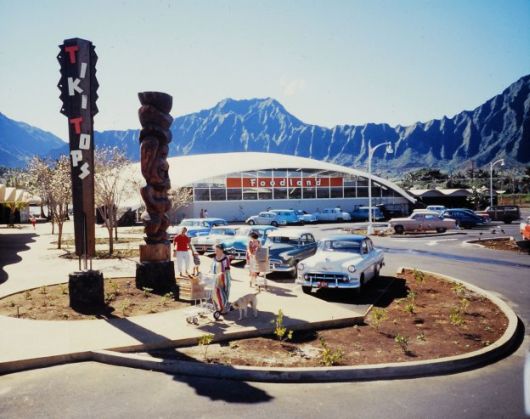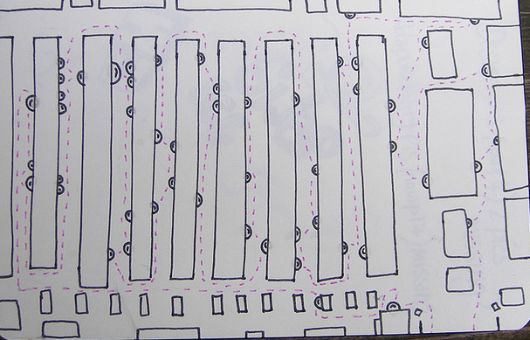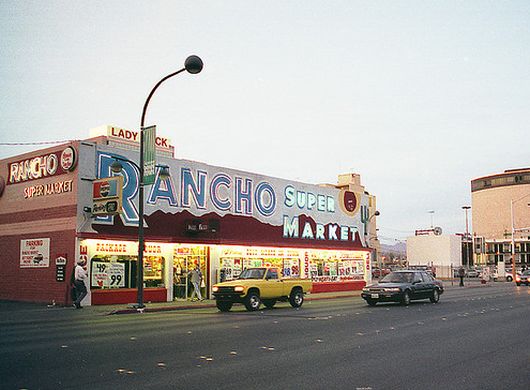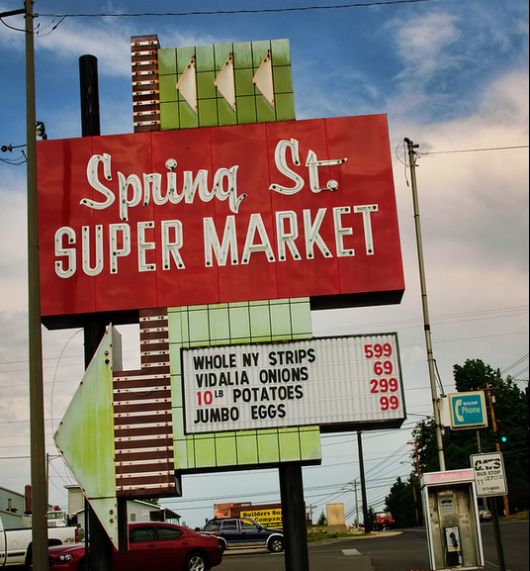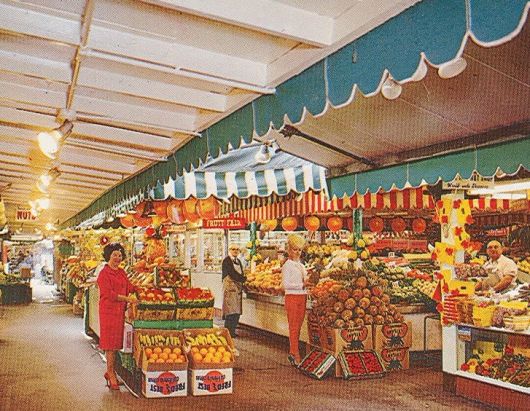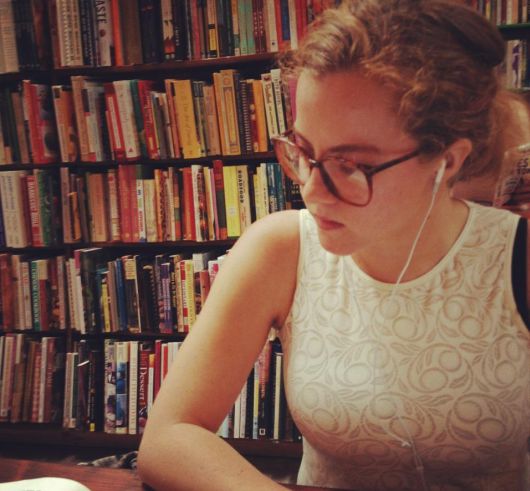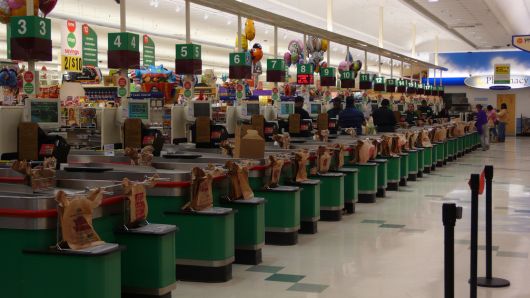
Nerve and Blood
by KYLEE LUCE
April in my small mountain city always slams the senses with such a boisterous beauty, its cruel, tiny daggers through your body with every bursting pink tree. Two years ago falling in love under these conditions felt revolutionary.
New love makes you feel like you’ve made a recondite discovery about a secret dimension of beauty, everything raw and glittering like manna from the gleaming atmosphere above your skull. It seemed, viscerally, like I had never loved anybody more. It felt, I wrote that spring to no one but myself, like an ecstatic skinning. Even then I associated love with violent metaphors, and two years later I found myself falling out of it again like skin skidding across pavement — hitting the ground was always going to hurt. Which is an experience I actually had early this April: tripping like a demolition in the middle of the deserted dark street I was trying to jog across, taking savage pleasure in inspecting the road rash swelling across on my knees, the bruises seeming like an omen for something that was just out of conscious reach.
“I love living alone,” I announced last winter to my friends, after my previous living situation, a cozy one-bedroom for two, had fallen apart with the force of fine china flung against a wall.
Alone, I spent the rest of April supine, sober, physically injured, unemployed, and browsing the internet — a month I’ve posthumously re-named Purgatory 2k14. I’ve always read novels like it was the first commandment but something about this less-than-idyllic situation shifted my appetite away from anything that couldn't be finished quickly, within a few hours at most; movies qualified but mainly I found myself glued to my laptop elsewhere on my internet. In Purgatory I consumed a hundred poems, a thousand essays, a hundred thousand youtubed songs, half a million tumblr posts, and approximately one million tweets; something about the chaotic stream of word and image and sound-all flowing out of context and nearly out of time in the wild-west landscape of ‘online’ felt like a gentle mental anesthetic, a soft psychic massage.

Twitter became my very favorite time-wiler, scrolling all day like snacking, starring every other stray tweeted thought and messaging my Internet Friends things like “lol if u were insane how wld u even know?”
Jennifer Lawrence, in one of her vast array of adorable interviews with the media, said she didn’t like exercising and wanted to punch anyone who said they did in the face; “Be careful, normcore kills,” I said to anyone who asked about my unsightly flesh wounds. Regular exercise was only something I decided I liked after I stopped drinking, just another one of those dysfunction-to-‘health’ narratives that’s fueled a decade of reality TV arcs (Intervention even used to be pretty good).
If I could give one piece of advice to all the pretty young things in the world I’d tell them to never, ever quit drinking right after a breakup, or just never at all. Never stop and never surrender, not unless you want to be the kind of person who can’t exist in any kind of social situation for more than 45 minutes. Living alone quickly spoiled me for time unfettered, time with my precious movies and music and books, and sober conversations with other people, unless they wanted to sit next to me in a 1:1 ratio and talk for hours, suddenly became a colossal bore. When I stormed out of one new lover’s life and another stormed out of mine I felt too tired to audition replacements, like I had clawed my way from the ocean onto some distant beach and, half-drowned, could manage nothing more than laying there in the stark April sunshine to breathe.
“It’s not that I don’t want you to stay, it’s just that I like having more space to sleep,” I lied lamely to the last of them. We haven’t spoken since.

There’s nothing like total sobriety to make you feel washed-up at 24. But newly loveless and numb is a hell of a place to start reevaluating your life and don’t try it at home unless you’re prepared to risk dramatic results, to rip the surfaces of your life to shreds. In a grand dramatic gesture I threw my hands in the air like Kanye told me and quit my job, decided to go back to “freelancing”, odd jobs whenever I could scrape them off my “network” or the internet. Pre-freak jogging accident I had taken to rolling out of bed mid-morning and going on long walks through my blooming Mountain City during business hours, floating rather than tunneling through my lengthy free time — the scenery didn’t matter nearly as much as the motion, the feeling of keeping the frames rolling in the endless cinema of living.
I knew, inexplicably but from experience, that not everyone conceptualized their life like this; it seemed like I had spent most of my young adulthood begging less-enthusiastic boyfriends to go on walks or drives with me, hundreds of vain attempts to sell the appeal of willful aimlessness to people illiterate in the language of its charms. The Ex — recent recipient of that capital-E designation that most people begin using, at some point in their twenties, on the person who embodies their most intense experience of romantic love and utter romantic failure, the one person who claims the title as shorthand for anyone who knows you — agreed as reluctantly as any of them, routinely scaling around a few blocks and turning towards home at the first possible opportunity like there were a thousand more pressing uses of his time.

But time, in the cut of my life-movie that played during Purgatory, felt strangely dilated, stretching through its slow-motion progression like a lazy housecat. Days were weeks, weeks were months. It’s amazing how many airy relationships it takes to fill the area formerly occupied by a single denser one, the kind of thought you never think about until you’re forced. But in deleting most of the demands on your time there’s always a chance you’ll be pleasantly surprised with the new ones that start to fill it; friendships move into the empty space like eclectic furniture in surprising shapes. Inside the molten minute before a major change cements back into routine, the options for organizing the living room of your life seem almost infinite; like liquor this can be pleasantly intoxicating.
One night, drunk on the cheap grocery-store beer he found abandoned in my fridge, a handsome male friend with a girl’s nickname dragged my porch bench into the middle of the street so we could “sit and look at the goddamn moon." It was the night of the April 15th eclipse and we sat in comfortable silence as the odd car appeared on the road and swerved around us, watching as the ‘blood moon’ sliced through, in glorious reddish hues, the familiar routine of the black-white sky.

But intoxication, in all its dizzy glory, was mostly for March. That was the month I took a roadtrip with a bunch of new people to Los Angeles and pretended to be irritated by the long drive; but spending all day flinging forward on a freeway secretly felt like the dark movie theaters of my childhood, an activity that allowed for the visceral luxury of jolting through time and space while staying seated, doing nothing. The cars in L.A. never stop moving, even if it’s only inch by inch during some hours of the day, perpetually rolling through time and space to get to some slightly different place in the same general place. But the car I arrived in was somebody else’s rental and mostly stayed parked, so I took the subway and located destinations with my legs — a method of motion that perfectly suited my aimless mood. Walking, I decided that week under a canopy of sunlight and rooftop pools and palm trees, was wonderful.
Scrolling through WebMD on the edge of my bed, my best friend informed me it was possible to fracture your kneecaps. That was the day before I reluctantly went to a doctor about my mangled knees, which had continued to burn and swell with a viscous entropy that promptly prevented moving at all; staggering to the bathroom in my one-bedroom apartment was suddenly a major ordeal. I lay in bed and tried to imagine what life would be like with useless legs; I rewatched Blue is the Warmest Color that night on Netflix and felt surprised at the scene that made me cry: Adele, walking across the street, makes eye contact with Emma for the first time and can’t stop looking. Her head snaps around in wild disorientation — the world goes spinning recklessly off its axis — and it’s over, she’s doomed.
Falling in love feels sudden but losing hope is more like shedding, losing pieces of your idea of the two of you like so much dead fur or dry skin. Post-breakup, these organic bits of matter accrue in memory an oversized significance: the times right after you stopped trying in earnest to communicate, to convey things that were important, the arguments beyond real effort when something in you shriveled and gave up. The inevitable realization that what you were really searching for, an ever-elusive bridge in the jungle between two skulls, was something you’d never find.
The times you wondered how you could have forgotten this bridge had never actually existed, ever, between anyone. All those moments you felt knocked upside the head with the blunt understanding that you were stuck — again – with just yourself, like a kid stumbling in stag to the prom.

The irony of spending an inordinate amount of time online is that the internet always serves as a paradoxical reminder you’re still made of fleshy matter, that your mind’s permanent address is still a home of bone and nerve and blood. Crippled with wifi — in this sorry state of affairs it seemed obvious there was a strong connection between the sloppy happenstance of my injury and the sloppy happenstance that was my whole dumb life, intensities of feeling and extremes of experience collected like old coins, an unsightly pattern of blind, blazing, blundering chaos. I wanted to reach through the time-space continuum and strangle every last one of my old selves, scorch out my own reckless stupidity. Friends, more than one, told me sympathetically this was just how it went with ‘young love’.
This didn’t console me much, so I reassured myself with the thought that I had done almost zero writing and almost zero anything while I was drunk in love (and frequently drunk for real too.) I spent a year of my life zooming so high on the view for two I could barely make out the lines of the landscape below, oblivious to anything outside my internal capital-U experience of Us. “I love reading your writing! you should write more!” I would tell him or he would tell me, but what is writing compared to the blinding-bright love-soaked light of talking and touch? The first thing I would ever publish outside of a personal blog appeared a full year after those highest highs, well after our shared velocity had started angling steeply back towards earth, back towards the separateness of one and the refuge of words. But the end of Us was not exactly a smooth transition.
“Pretty sure I’d rather just have seventeen cats surrounding my deathbed, swatting their tails in my face while I sneeze, than ever have a breakup like that again. I’m never, and I mean never, getting a boyfriend again,” I declared, in what is probably a strong contender for Most Melodramatic E-mail Ever Written.

David Foster Wallace, during the commencement speech that would arguably become his most famous work, said one of the biggest dangers of his academic education was his tendency to over-intellectualize everything; but since I dropped out of college I tend to think that tendency is just present in certain kinds of minds no matter what. This impulse to locate and justify and theorize my problems through abstraction has only gotten worse as I get older, and with every article I excitedly emailed a friend or tumblr quote I reblogged from bed I imagined a concurrent pair of eyes rolled. Still, stored and strung together, ideas become narrative. And stories-when they’re at their most dangerous-are fuel inside the engines of our lives.
Secretly I think I’ve always hoped a relationship could be a mad-scientist experiment between two bodies, a chemical reaction with unpredictable alchemy, or at the very least a lively parlor game between two brains. Secretly I think the boys I’ve dated have always hoped a relationship could be a means to a more comfortable existence. This felt like a radical realization, that the force behind a million (turbulent, frequently frightening) misunderstandings — fights that began to escalate, that fall, beyond anything resembling the polite term "disagreement", the kind of discourse that disturbs all surrounding life, a fact The Ex and I took turns reminding each other while having them with variations on the theme “Shut up, the neighbors can hear you!” — could maybe have been more than "different communication styles" or "love languages" or any other self-help buzzword from pop psychology. The problem, possibly, could have included the icy friction between two people simply pursuing two polar-opposite projects.

If all you really want is a Good Girlfriend, if your idea of the perfect couple is like a coloring book with a lot of stark black lines, then almost anyone could fill in the figure beside you. Even if you felt some faces looked better there than others, an enormous number of bodies could fit the part with a little shoving. And if one of the reasons most people crave romantic connection is to be witnessed, there’s nothing like performing a role and sticking to a script to make you feel invisible. I’ve always liked to scribble.
Under lurid hospital lights a wrinkled doctor said I had bone bruises but give me a fortnight and a Tramadol scrip and I’d be fine. Freed from the weight of a dozen disaster scenarios I let him linger a little too long, stroking my arm and cooing It’ll be OK, honey in the croaking voice of Viagra’s target demographic; with the future veering sharply back within the territory of my regular life I could afford to give him a flippant smile. Across the examination room my best friend choked back a laugh and attempting to take an instagram video, and for a molten moment life felt wrestled and pinned into being tolerable. At least, I told myself, I’d soon be back to my habit of wandering around with nothing to do and nowhere to go, on my feet to any place my legs could propel me.
“I’ve decided to stop writing about myself,” I told someone earlier this year and I meant to mean it, but later I just told myself if anyone has any right, it is to change her mind. I told myself April is always the cruelest month and everything will be different now that it’s over. Post-Purgatory, I stumbled on an essay Rebecca Solnit wrote about the strange optimism of Virginia Woolf, quoting one of her famous lines: The future is dark, which is the best thing the future can be, I think. I told myself that maybe for a certain kind of brain, all this lived misery was just an excuse to fly your fingers across a keyboard, to never stop moving. You can tell yourself almost anything and it’s easy and sometimes it even works, who knows?
Kylee Luce is the senior contributor to This Recording. She is a writer living in Salt Lake City. You can find her tumblr here and her twitter here. She last wrote in these pages about Lars Von Trier's Nymphomaniac.
Photographs by the author.

"Temptation" - New Order (mp3)
"Your Silent Face" - New Order (mp3)

 THE WORLD
THE WORLD  Tuesday, November 28, 2017 at 8:52AM
Tuesday, November 28, 2017 at 8:52AM 




 dan carville,
dan carville,  los angeles
los angeles 







































